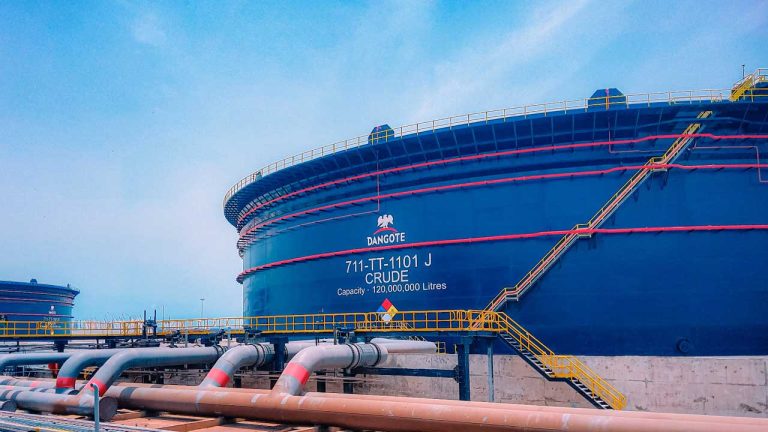The volume of Premium Motor Spirit (PMS) imported into Nigeria saw a significant decrease in October 2024, indicating progress towards achieving self-sufficiency in petrol production. This decline was attributed to increased PMS production by the Dangote Refinery, particularly in the first two weeks of October.
Data from S&P Global Commodity Insights revealed that 280,400 barrels of gasoline and blend stock were imported into Nigeria during the first week of October 2024, ending on the 6th. Subsequently, another vessel, a product tanker from Antwerp, transported 290,567 barrels of gasoline to Nigeria in the week ending October 13.
This development aligns with previous reports by the Organisation of Petroleum Exporting Countries (OPEC) regarding the potential impact of the Dangote refinery’s operations on market dynamics.

OPEC’s monthly Oil Market Report for June 2024 forecasted that the Dangote Refinery and Petrochemicals would exert significant pressure on Europe’s oil industry, particularly the Northwest Europe (NWE) Gasoil sector. This projection underscores the global implications of Nigeria’s increasing self-sufficiency in petrol production.
Reuters reported that about a third of Europe’s 1.33 million barrels per day (BPD) average gasoline exports in 2023 were directed to West Africa, with a significant portion ending up in Nigeria. The potential loss of this market, combined with new environmental regulations in Northwest Europe, could compel many plants to reconfigure, explore new markets for lower-quality gasoline, or cease operations altogether.
Nigeria has traditionally relied heavily on European refiners, spending approximately $17 billion annually on imported refined petroleum products.
In August, Nigeria’s weekly average of petrol imports stood at 1.3 million barrels. The Nigerian Bureau of Statistics (NBS) reported that the value of petrol imports in the first half of 2024 amounted to N5.8 trillion, reflecting an 87.09% increase compared to the same period in 2023 (N3.1 trillion).
The decline in petrol imports suggests that the Nigerian National Petroleum Corporation Limited’s (NNPCL) projection of ending petrol imports by December 2024 may materialise.


